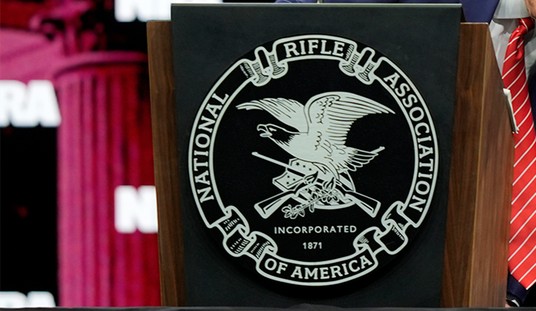As expected, Congressional Democrats are challenging the language in Donald Trump's "One Big Beautiful Bill" that essentially removes suppressors from the National Firearms Act. Somewhat surprisingly, though, less than half of House Democrats signed on a letter authored by Colorado Rep. Joe Neguse arguing that the provision violates the Senate's Byrd Rule, which requires reconciliation bills contain only budgetary, not policy measures.
Now, that doesn't mean that more than half of House Democrats are on board with treating suppressors like normal firearms instead of NFA items, but it does suggest that at least some of them disagree with the notion that the suppressor language is in conflict with the Senate's rule.
In fact, as Gun Owners of America pointed out on X, the letter authored by Neguse actually makes a strong case that the suppressor amendment passes the Byrd Rule test.
On multiple occasions, Neguse's letter acknowledges that the NFA is a tax measure, including this bit:
This landmark legislation imposed a tax and registration requirement on certain firearms and accessories that Congress determined did not have a legitimate lawful use, and the statutory definition of a firearm under the NFA has included silencers since its inception. Under the statute, individuals seeking to purchase or manufacture a firearm covered under the NFA are subject to application requirements, fingerprinting, an enhanced background check, and a $200 tax to be paid to the Bureau of Alcohol, Tobacco, Firearms, and Explosives (ATF). This law has been in place for 91 years and was enacted because “Congress found these firearms to pose a significant crime problem because of their frequent use in crime.”
Even with the NFA's restrictions in place there are millions of lawfully-owned suppressors in circulation, and they are rarely used in crime, which refutes Neguse's 91-year-old talking point.
There's also no "enhanced" background check for NFA items. It's essentially the same NICS check that's performed on retail sales of non-NFA firearms, with some built-in delays included in the process and no ability to transfer an NFA item if a check has been delayed for three business days. As for the registration requirement, it's nothing more than an acknowledgement that the transfer tax has been paid. If there's no tax impose on the devices, there's no need for a registry.
The primary reason for the NFA's existence is, as Neguse admits, to tax certain items to make them harder for the average citizen to obtain. Yet he and his colleagues insist that removing the tax suppressors from the NFA violates the Byrd Rule.
As you know, the so-called “Byrd Rule” under the Congressional Budget Act makes clear that, in short, non-budgetary provisions cannot be included in reconciliation legislation. Removing the regulatory structure for firearm silencers is thus not only dangerous, but blatantly violative of the Byrd Rule. Put simply, the provision represents a clear attempt to make a significant policy change to a century-old law, and cannot be adopted through the reconciliation process on that basis alone.
No, you can't make policy through the reconciliation process, which is why we aren't seeing things like National Right to Carry reciprocity in the One Big Beautiful Bill. But removing the maker and transfer taxes on suppressors (along with the registration for paying the transfer tax) isn't pure policy at all, and as such it should fly with the Byrd Rule.
One hopeful sign in that regard is that while the House Rules Committee made some changes to the OBBB language on Tuesday night, the suppressor language remained unchanged.
Another hint is that Neguse and his Democratic colleagues are appealing to Republican senators in their letter, not specifically to the parliamentarian who'll be the one ruling on whether or not the suppressor language complies with the Byrd Rule. That might be mostly explained as just maximum political theater, but I suspect that they also know their argument is pretty lame, and not likely to prevail when the parliamentarian considers whether the language comports with the rule.









